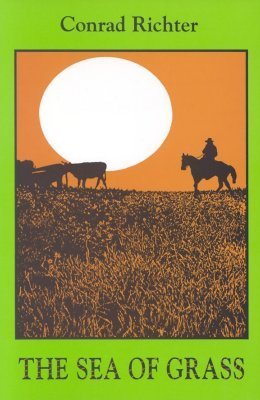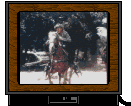What do you think?
Rate this book


150 pages, Paperback
First published January 1, 1936


That lusty pioneer blood is tamed now, broken and gelded like the wild horse and the frontier settlement.Bottom line: It's a decently written book, but not really a great 'Western.' It does make a nice counterpoint to the many Westerns wherein the cattle barons are the bad guys and the trod-upon farmers are the heroic underdogs taking on the Goliaths of the West. Best read in conjunction with other classic Westerns, though. I'm not sure it's quite sturdy enough to stand on its own as a classic.
His empire is dead and quartered today like a steer on a meat-block . . .
And I can see his huge parlor, without rugs or furniture, piled to the pine rafters with white sacks of flour and burlapped hills of sugar and green coffee, and wooden buttes of boxed tobacco, dried fruits, and canned tomatoes . . .